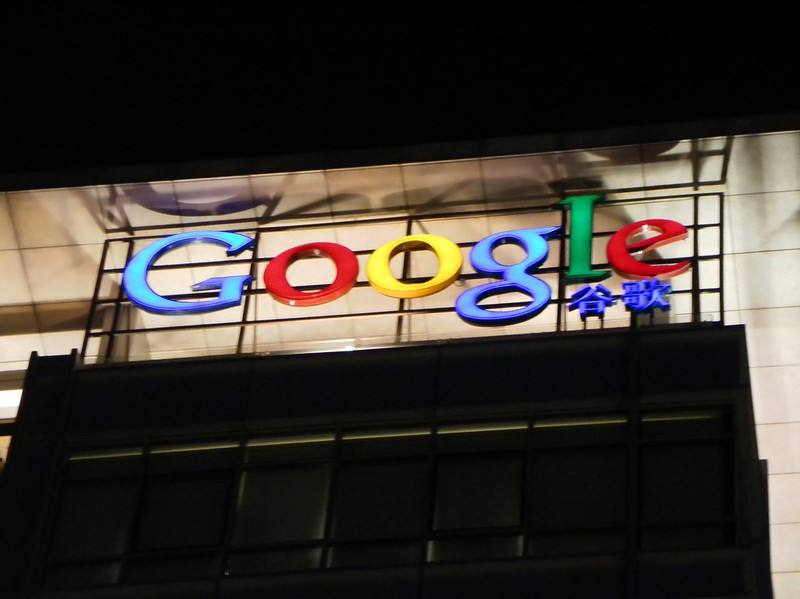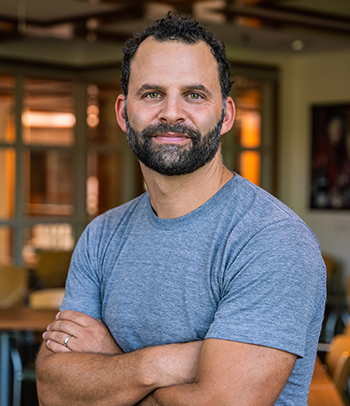Doing Business in China: What the NBA Can Learn from Big Tech
Last week, a controversy in the National Basketball Association (NBA) ignited widespread public conversation about the perils of doing business in China. In a now-deleted post, Daryl Morey, who is the general manager of the Houston Rockets, tweeted a picture of an image that said “fight for freedom, stand with Hong Kong.” The Rockets’s owner pushed back, tweeting that Morey “does not speak for” Houston’s team.

Published by The Lawfare Institute
in Cooperation With

Last week, a controversy in the National Basketball Association (NBA) ignited widespread public conversation about the perils of doing business in China. In a now-deleted post, Daryl Morey, who is the general manager of the Houston Rockets, tweeted a picture of an image that said “fight for freedom, stand with Hong Kong.” The Rockets’s owner pushed back, tweeting that Morey “does not speak for” Houston’s team. Morey’s boss was widely seen as capitulating to the regime’s disapproval and as prioritizing his business interests over free expression. The NBA has an enormous following in mainland China, where the Rockets are the second most popular team and formerly enjoyed a partnership with the Chinese Basketball Association.
We’ve seen this story before. An American business creates an innovative new product. That product succeeds in the United States. With the product’s success comes business growth, and as the business grows, it seeks to expand beyond U.S. borders. It offers the product first in places like Europe and then in emerging markets like India. But any business striving to attain truly global reach can’t ignore the most populous country on the planet, and so it eventually expands into China.
Within a short period of time, the business comes face-to-face with the human rights practices of the Chinese government. Maybe the business’s product is used to suppress speech. Or maybe the product becomes a tool for surveillance that results in imprisonment and torture. Or maybe the product facilitates a violent government response to protests. The company’s name appears day after day next to photos of violence and headlines about moral wrongdoing, and the company balks. Although the move into the Chinese market had once seemed like an easy and inevitable economic windfall, it is now far more fraught as the business suffers damage to its brand. And perhaps, if the headlines are too relentless, the imagery too horrific and the fear of a contentious congressional hearing too great, then the company withdraws from China entirely.
This is a story the tech sector knows well. Yahoo provided information to the Chinese government that led to the arrest of a Chinese dissident. After years of bad press, a series of congressional hearings and lawsuits, Yahoo created a business and human rights program in an attempt to stop its reputational hemorrhage. After reports of government censorship of results on its search engine, Google withdrew from China. And Facebook’s mere interest in offering its social network in China resulted in immediate harsh backlash.
Even though it offers a dramatically different product, the NBA now faces similar challenges. While the NBA’s China controversies may appear novel, they mirror those that have ailed tech companies that have made the plunge into the Chinese market.
To some, the backlash over the Morey incident may appear different because it implicates a domestic employee’s speech rights. Indeed, commentators and policymakers have focused on Morey’s free expression rights. But that’s nothing new in the tech world. Google employees have protested the company’s work on a China-specific search engine, and Microsoft employees have offered support to fellow engineers in China over the labor conditions there. In Silicon Valley, it’s expected that employees will have strong views on policy issues, and executives work hard to anticipate and respond to their concerns.
Others have focused on the NBA’s significant economic potential in China. But again, that’s no different from the tech industry, where product and sales teams salivate over the massive size of the Chinese market. China has more than one billion potential tech product users, and it’s an enormous ad market that’s expanding rapidly. Digital ad spending in China was projected to be $80 billion in 2019 and to grow at a rate of 22% this year (compared to $129 billion in the U.S., and only $20 billion in the U.K. and $9 billion in Germany).
People have also criticized the NBA for discrepancies between their English and Chinese press releases, with the Chinese translation stating that the league was “extremely disappointed” in Morey’s “inappropriate” tweet and its American counterpart adopting a more measured tone. But again, that’s a familiar dance for tech companies, which often strive to appeal to the Chinese government in order to keep their services up and running, while simultaneously maintaining their distance from the regime in their rhetoric to domestic audiences.
And neither the NBA nor U.S. tech firms have gotten clear guidance from the U.S. government, which sends mixed signals through inconsistent policy positions. The Trump administration imposed tariffs on Chinese products, hoping to advantage U.S. products in competition with companies in China. But, in perhaps the most critical competition between U.S. and Chinese businesses—the battle in technology—President Trump’s Justice Department risks weakening American firms by initiating antitrust investigations into several of the most successful American companies at a moment when China’s tech companies pose an increasing competitive threat. Several Chinese apps have risen rapidly: TikTok, a video-sharing product made by a Chinese firm, was the most downloaded app in the Apple App Store in 2018.
The path ahead for the NBA in China is unclear. But even if it decides to try to continue to expand its business and talent development operations in China, engagement need not mean indifference. Here, the lessons from the tech sector are instructive.
After Yahoo’s experience in China, it joined with Google and Microsoft to start the Global Network Initiative, a multistakeholder organization that promotes free expression and privacy (Facebook joined in 2013). Google published a transparency report to shine a light on content restrictions and government data requests, which has since become standard practice in the industry. And Facebook is building an external oversight board to allow feedback from experts outside of the company on its content policies and individual content-removal decisions, in part to help the company navigate challenges it faces from operating in countries with legal norms on free expression that conflict with those in America.
Tech companies have learned that operating in challenging markets requires diligently engaging with knowledgeable stakeholders to better understand the human rights concerns at stake, developing principles to establish boundaries for their work, and providing transparency into their operations so that they can receive ongoing feedback on their conduct. Their responses go beyond the “expression versus stock price” dichotomy of the current NBA debate in order to engage with the underlying human rights challenges so that companies can build better products and operate their businesses more responsibly.
Success in the NBA depends on having a good playbook. Tech’s China playbook is neither comprehensive nor perfect, but it’s one that the NBA can learn from.


.jpg?sfvrsn=407c2736_6)


